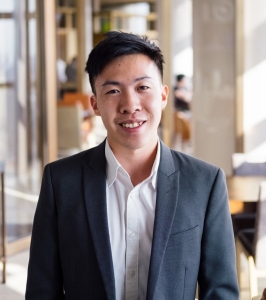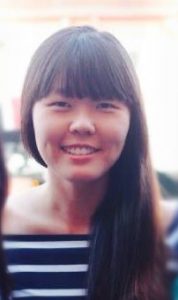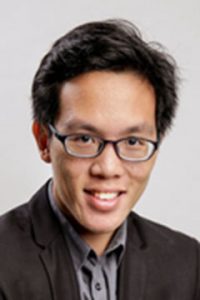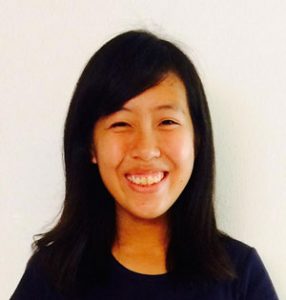Alumni Stories
James Chang Wen Jie, Sustainability Management Associate Class of 2018
The environmental issues of today are complex, and advancing sustainability will require drawing on various spheres like policy, science and the humanities. As a developing sustainability professional in the natural resource sector, the complexity of environmental issues and the need to pull on various disciplines to balance various interests has become very real to me. There is definitely much to learn, but the four years in BES has equipped me well to start my journey.
Notably, BES allowed me to have both breadth and depth of learning. Our core modules touched on how the environment relates various disciplines, including public health, law and communications. Specializing in Biology, I was also able to study field ecology in depth. This interdisciplinary programme structure allowed me to understand environmental issues in multiples scopes. Some projects required us to explore landscape-level issues incorporating both social and environmental considerations; my honours thesis, on the other hand, had me conduct in-depth research on a specific non-native aquatic species in our reservoirs. In this way, the interdisciplinary nature of the programme truly reflects ‘sustainability’ in the real world, where practitioners are required to understand the big picture while having the technical competencies to drive practical change.
BES was great for the people-side of things as well. The small class size meant that I was able to forge many precious friendships and allowed our lecturers to interact with us on a more personal level. I will never forget our BES field studies module in Ranong, Thailand, where we spent two weeks honing our field research skills in coastal mangroves by day, then spent evenings playing on the beach.
If you have a wide range of interests, or are looking for a course that can equip you to understand the broad nature of sustainability, BES is the right place for you!

Tan Wen Ting, Environmental Consulting Class of 2015
The BES programme has been truly multi-disciplinary and inter-disciplinary, exposing me to environmental issues from various standpoints and challenging me to join the dots and think of solutions that take into consideration all stakeholders. It has sharpened my ability to be versatile and adapt quickly to situations. These skills have been immensely useful at work.
For example, during my time in NUS and BES, I was exposed to various kinds of field studies from the modules taken as well as from my Final Year Project. They ranged from the terrestrial environments to aquatic and intertidal environments. These experiences prepared me to be ready and open to the field work with the environmental consultancy firm I am in now, from the construction sites to muddy fields. I knew that I had the skills and experiences, and that I was ready for the work that was presented to me.

Jessica Tay, Studying Masters overseas Class of 2015
What I enjoyed most about the BES programme was the various field trips, especially the one to Bohol, Philippines.
Being the pioneer batch, many said that we were like guinea pigs, but it was precisely for this reason that we had many opportunities to have an amazing variety of experiences in our four-year programme.
When the BES programme was recruiting its first batch of students (that is, us), the office touted it as a multidisciplinary course with two main tracks: geography and biology. This was one of the biggest advantages of our programme, as I got the unique chance to meet classmates with different aspirations, goals and ideals for the environment.
Under the Biology track, I developed an interest to become a field ecologist. In my final year, I knew that I was not done with being a student. There was still so much to learn! I wanted to go overseas to meet other like-minded people and to pursue my graduate studies in ecology. That is why I decided to go overseas to pursue a Master’s in Applied Ecology, as part of an ERASMUS programme.
It was also my education from BES that I learnt to appreciate being around people from different academic backgrounds and interests that ultimately led me to choose to enrol in the Masters programme.

Ezra Ho, Research assistant at NTU Class of 2015
Being exposed to multiple disciplines and perspectives at BES has helped to broaden and deepen my understanding of the world. While it is unlikely an undergraduate programme can help you master multiple disciplines, it surely helps to develop interests and knowledge in fields of studies beyond that which you are comfortable in. This helps to cultivate an agile mind that is able to easily move between bodies of knowledge to gain richer perspectives.
At the Earth Observatory of Singapore (EOS), I provide research support to the Aftermath of Aid project, which investigates the long-term contribution of humanitarian aid to the reconstruction and recovery of the tsunami-affected Indonesian province of Aceh. On hindsight, my BES experience has given me a unique foundation to start from, where during my course work and thesis research, I worked with geographical, sociological, anthropological and policy literatures. This has enabled me to ease into and engage both academic and policy discussions around humanitarian interventions.
Moreover, because EOS primarily conducts fundamental research on volcanoes, earthquakes and tsunami, being exposed to some biology and physical geography in the BES programme also helps me to better understand the geological mechanics of natural hazards. More importantly, my BES experience has taught me to appreciate how disparate elements of society and nature relate and interact.
In short, anyone interested in working at the intersections of nature and society needs to seriously consider signing up for the BES programme.

Melissa Pang, Studying Masters overseas Class of 2015
The four years I spent in the BES programme was very interesting, to say the least. It gave me the opportunity to meet interesting and inspiring individuals, and work on a highly fulfilling thesis in my final year. It also exposed me to different facets of the environment and its issues, and widened my perspective in many ways. From a global perspective, I think it provided a great foundation in environmental studies, and a good starting point for further specialization at the postgraduate level.
The BES programme provided me with a broad-based, interdisciplinary foundation in environmental studies. I, however, found it necessary to pick up and develop some hard (technical) skills. These are very useful—some might even say essential—for a career in environmental science research or environmental consultancy. That is why I enrolled in the MSc. in Environmental Engineering and Science with École Polytechnique Fédérale de Lausanne in Switzerland. I am currently specialising in environmental monitoring and modeling, which involves the use of geomatic/informatic tools to study the environment and tackle environmental issues. It is a sweet blend of environmental science, engineering, and computer science.
Sarah Koh, NGO Class of 2015
BES has taught me to think critically about problems in the world, why they exist, and the different scales from which to consider problems, causes, and solutions. Before BES, I have to admit how naïve I was to think that problems were just always there, and they had to be solved. It did not occur to me then to even ask the questions “Why does it even exist?” or “What is the history that led to the current situation?”.
Our overseas field course in Bohol, Philippines gave my group the privilege of interviewing locals on their response to a disastrous earthquake that happened just prior to our trip. Interacting with my interviewees made me realise that the poor have a unique perspective, and I cannot consider them as passive subjects in need of help. They exercise power and demonstrate resilience in their own ways.
Learning concepts of political ecology and vulnerability analysis opened my eyes to see that the poor in rural communities in Majority World (or more frequently but non-descriptively called ‘Third World’) Countries suffer disproportionately from environmental degradation because unlike the rich, they do not have the resources to shield themselves from its consequences.
My cumulative experience and learning from BES was what led to my decision to spend my first year after graduation interning with an international NGO, working in the Philippines with an indigenous group that live in the hills. It has allowed me an inside look into the poor and marginalised to understand their life, and to experience their challenges and think of possible solutions from their point of view.


